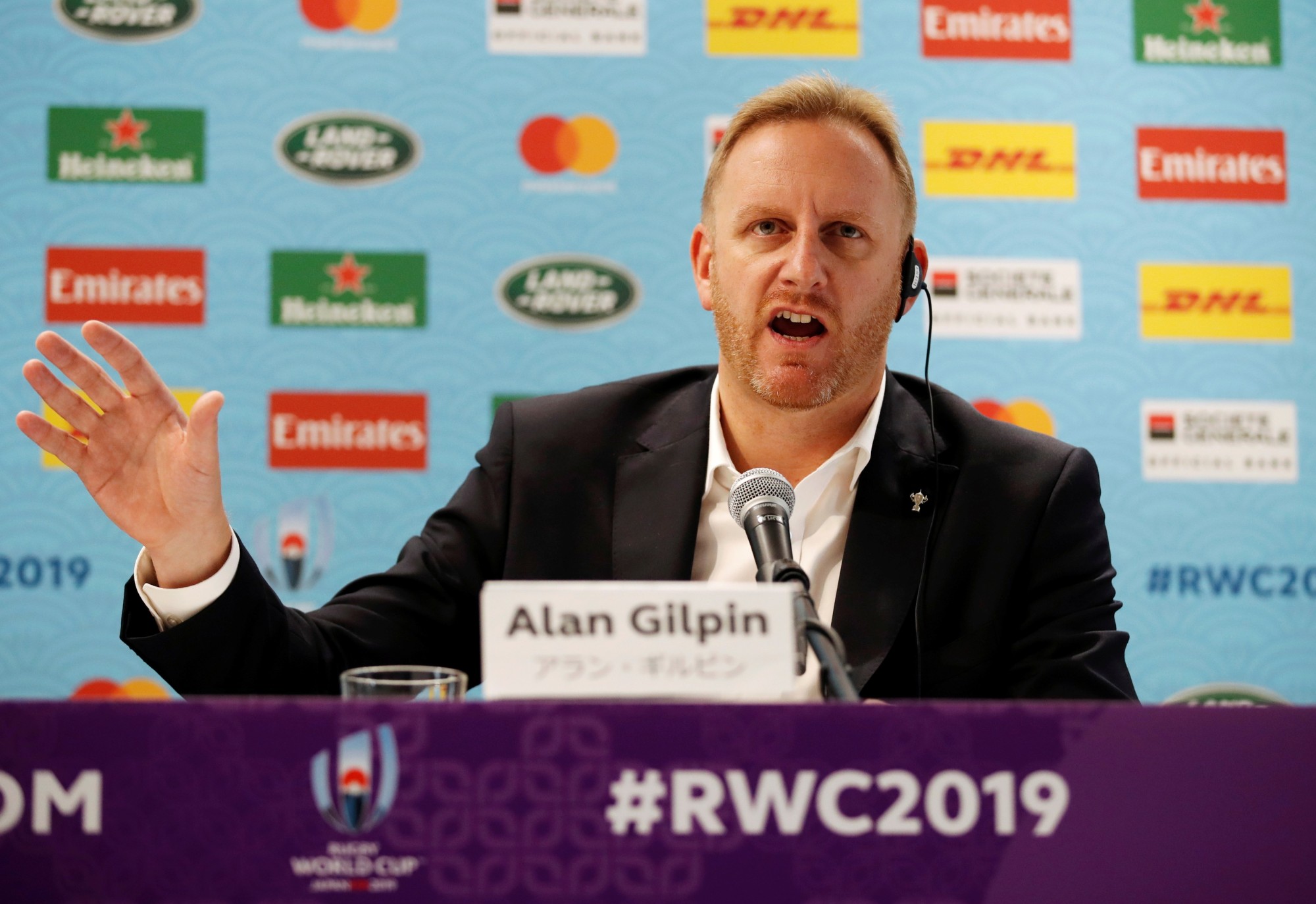Rugby World Cup organizers announced Thursday that two crucial pool games scheduled to take place on Saturday have been canceled to avoid the impact of a massive super typhoon set to hit the country.
A decision on whether to go ahead with Japan's do-or-die Pool A showdown against Scotland, set for Sunday in Yokohama, will be taken on the morning of the game.
The Pool B game between New Zealand and Italy in Toyota, Aichi Prefecture, and the Pool C match between England and France in Yokohama have both been canceled — the first time games have been called off in Rugby World Cup history. All fans with tickets will receive a full refund.
The Pool D game between Australia and Georgia in Shizuoka on Friday is expected to go ahead as scheduled, as is the Pool A fixture between Ireland and Samoa in Fukuoka on Saturday.
Typhoon Hagibis is predicted to be the biggest typhoon of the 2019 season and is expected to cause widespread disruption throughout Saturday, with public transport shut down in some areas.
Rugby World Cup tournament director Alan Gilpin said the decision to cancel the matches was made on safety grounds, following extensive consultation with independent weather experts.
"As you can imagine, the decision to cancel these matches has not been taken lightly," he said. "It's been made with the best interests of team, public, tournament and volunteer safety as a priority, based on the expert advice and the detailed information we have available.
"We've been intensively working through a range of contingency options, in partnership with the host cities, the venues and the teams, to try and ensure that any impacted matches had a fair chance of being played. However, the risks are just too challenging to enable us to deliver a fair and consistent contingency approach for all teams and participants. And importantly, to provide confidence in the safety of spectators."
Tournament rules dictate that teams are awarded two points in the event of a canceled game, meaning Italy, which still had a mathematical chance of qualifying for the quarterfinals going into its match against New Zealand, has now been eliminated.
New Zealand, England and France had already secured their places in the knockout round, and New Zealand and England will now advance as respective winners of their pools.
Neither Japan nor Scotland has booked its place in the quarterfinals yet, and their match at International Stadium Yokohama on Sunday has been billed as a winner-takes-all showdown. Japan currently tops Pool A after three victories from three matches, but a big win for the Scots could see them claim a place in the last eight at the Brave Blossoms' expense.
Japan will secure a place in the quarterfinals for the first time ever if the game is canceled. The decision on whether it goes ahead must be taken at least six hours before the scheduled 7:45 p.m. kickoff, but Gilpin said the high level of interest and the stakes involved would not be a factor.
"We've looked again at the potential to apply some kind of consistent contingency plan across all the games that could be affected this weekend," he said. "It's important we treat all those matches consistently and fairly. I think it's important to remember that Italy are in exactly the same position that Scotland are in.
"The Japan-Scotland game clearly is a huge match and we would love to be playing that game. We will be working incredibly hard with our colleagues from Japan Rugby 2019, the host cities and all the authorities on Sunday morning to do everything possible to see that match played. But we won't treat that match, if it can't be played, any differently to the other matches."
Three other games are scheduled for Sunday — Namibia vs. Canada in Kamaishi, Iwate Prefecture, United States vs. Tonga in Higashiosaka, Osaka Prefecture, and Wales vs. Uruguay in Kumamoto — and a decision on each of them will be taken on the morning of the game.
Gilpin defended World Rugby's decision to host the event in Japan during the typhoon season and dismissed suggestions that the canceled games have undermined the integrity of the tournament.
"No regrets at all," he said. "I think what you've all seen over the last three weeks absolutely in every respect vindicates the right decision to be here hosting the World Cup in Japan. It's been an incredible tournament on and off the field. We always knew there were going to be risks. It's rare for a typhoon of this magnitude to cause this impact this late in the typhoon season.
"The plans that we're implementing now are in accordance with our plans for the pool phase. We have a different set of contingency plans for the knockout phase, and while it's regrettable, we made, we believe, the right decision."




















With your current subscription plan you can comment on stories. However, before writing your first comment, please create a display name in the Profile section of your subscriber account page.